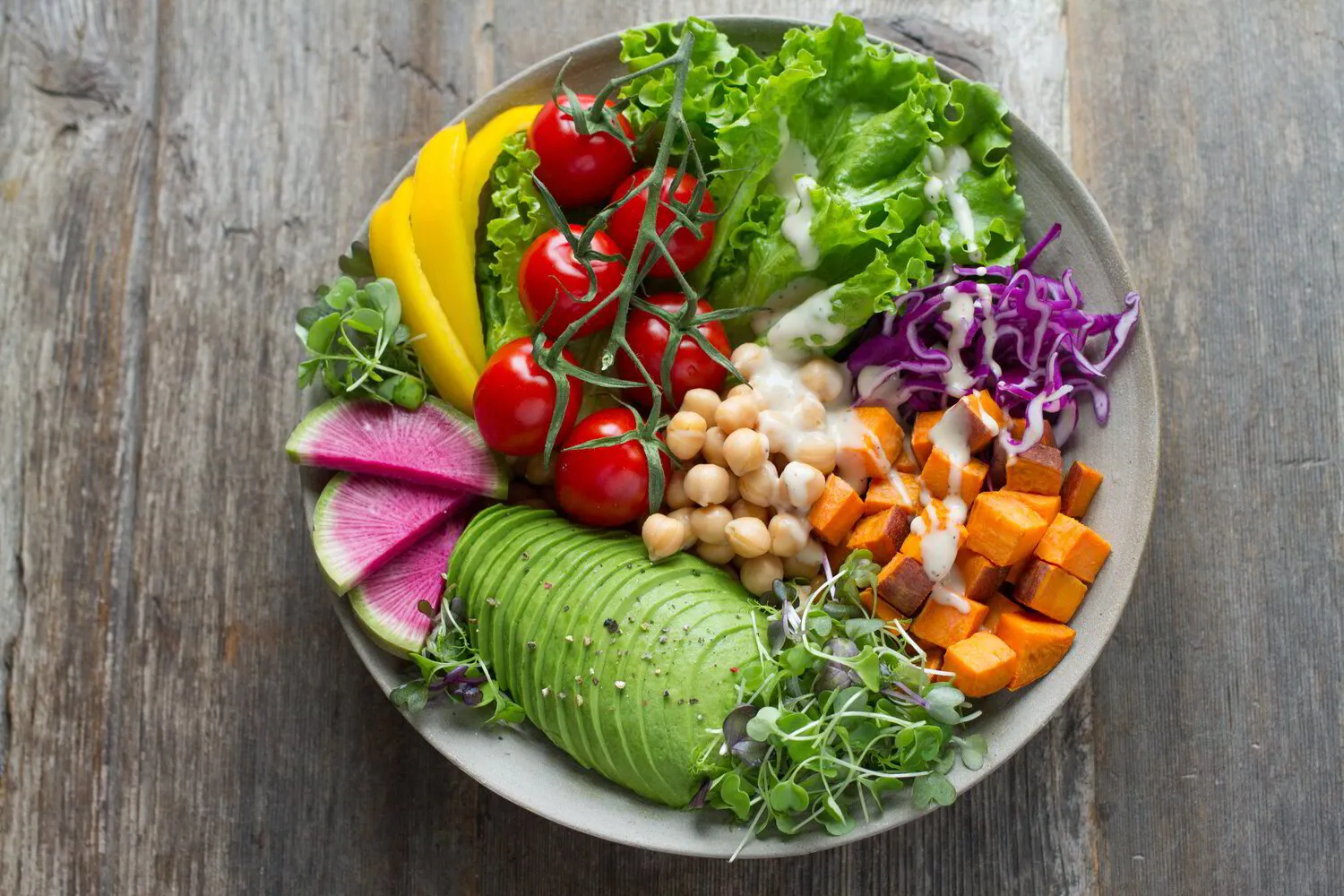Over the last two weeks, I’ve shared lots of information on IBS and SIBO, but the conversation surrounding gut health wouldn’t be complete without discussing gut function. Specifically:
- How your digestion is supposed to work
- Specific things that can go wrong in the body to cause poor digestion
- How this ultimately affects health and fertility
- Adjustments you can make to your diet and lifestyle to improve digestion
- And how to investigate and address your gut issues with a practitioner
So, let’s break down each of these things.
HOW DIGESTION SHOULD WORK
Digestion begins in the brain. We are meant to be in a relaxed, parasympathetic, “rest and digest” mode when we’re eating. Experiencing our food through site and smell also begins to prepare us for digestion, which begins in the mouth.
When we chew our food, we mechanically break it down and release salivary amylase to start digesting starches. We need to chew really well to start the digestive process, before the food moves to the stomach.
When food hits our stomach, we produce hydrochloric acid and pepsin to begin breaking down proteins and cleaving essential minerals away from proteins so they can be absorbed in the small intestine.
The valve at the bottom of the stomach, known as the pyloric sphincter, is meant to naturally open when the pH of the stomach contents is low enough—meaning we need a very acidic stomach to naturally trigger the next step in the digestive process. The ideal pH is between 1.5 and 3.
When those very acidic stomach contents reach the small intestine, two hormones are released the signal the next step in the process. Then, the pancreas is signaled to release bicarbonate, which neutralizes stomach acid and pancreatic enzymes, which include proteases, amylases, and lipases to break down nutrients into their simplest forms for absorption into the bloodstream.
The gallbladder is then signaled to release bile that emulsifies our fats and breaks them down into smaller molecules that can be further digested by our pancreatic lipase. Fully digested nutrients in their simplest forms can now be absorbed by the lining of the small intestine. What remains, such as fiber, moves to the colon to become food for our gut bacteria.
Gut bacteria ferment fiber and other waste, producing nutrients like short-chain fatty acids, B vitamins, and vitamin K, which help keep the cells in the colon healthy. Bacteria also help moves our waste through the colon so we can excrete it properly. Water is also reabsorbed and recycled from the colon.
That’s the basic process from beginning to end. But, given how many steps there are in the process and the involvement of different organs, there are a lot of potential opportunities for something to go wrong in the gut!
WHAT CAUSES POOR DIGESTION?
Well, there are several factors, including:
STRESS
We need to be in a relaxed parasympathetic state to properly digest our food, and sympathetic stress will cause the body to prioritize other functions and it inhibits the production of HCl needed to breakdown food in the stomach.
This can happen when you’re eating at your desk while working, riding in the car, eating in a rush, exercising intensely right before or right after eating or eating in an emotional state. Basically, habits most of us are guilty of!
NOT CHEWING ENOUGH
We should chew food thoroughly—about 30 seconds per bit—to avoid putting stress on other parts of the digestive system.
When we don’t chew our food, we don’t produce enough amylase in the mouth and then pancreatic amylase can’t complete starch digestion in the small intestine. Undigested starches can cause dysbiosis in the colon by feeding the wrong types of bugs.
LOW STOMACH ACID
Stomach acid disinfects our stomachs, kills harmful organisms, breaks down our food, and stimulates pepsin for protein digestion. Insufficient stomach acid can lead to overgrowth of bacteria, yeast, viruses, or parasites, acid reflux, and dysfunction further down in the digestive tract.
Despite how it may sound, acid reflux is actually a result of too little acid, not too much. Low stomach acid allows food to sit in the stomach and degenerate and also causes dysfunction in the valve between the esophagus and stomach. As food decays in the stomach, it causes excess gas and pressure that pushes food back up into the esophagus. The small amount of acid in that mixture burns the esophagus and causes discomfort.
Low stomach acid also prevents normal emptying into the small intestine. When food is finally pushed downward, the pH isn’t low enough to stimulate bicarbonate and enzyme release from the pancreas. Lack of enzymes means we can’t fully digest our food and these undigested particles irritate the gut lining and cause damage.
Most Americans are running low on stomach acid due to things like stress, too many refined carbs in the diet, OTC and prescription drugs like PPIs, NSAIDs, and birth control, nutrient deficiencies, food allergies or sensitivities, and excessive alcohol consumption.
GALLBLADDER DYSFUNCTION
Gallbladder dysfunction is caused by diets low in fat or high in bad fats. Low-fat diets do not stimulate the release of bile in the small intestine and bad fats reduce the quality of our bile and make it thick and viscous.
When bile becomes old or viscous, the gallbladder is unable to contract and this can lead to infections and gallstones, sometimes resulting in removal.
No bile equals no fat digestion, which equals irritation and liver stress.
UNDIGESTED FOODS/SMALL INTESTINE DYSFUNCTION
Undigested foods damage our villi and increase the permeability of the gut lining. The gut becomes “leaky” and allows large molecules to enter the bloodstream. The immune system responds to these molecules as invaders. As a result, we can develop food allergies/sensitivities, inflammation, pain, and autoimmunity. Undigested food can also lead to SIBO and IBS symptoms. (Do you have IBS or SIBO? Learn more here!)
LARGE INTESTINE DYSFUNCTION
The large intestine receives all the leftovers from poor digestion further up, which can include bacteria, parasites, and undigested debris. These things damage the colon, disrupt our gut flora, and can lead to weakness or degeneration of the colon cells. This is where we might see things like inflammation, diverticula, IBS, and flares of autoimmune conditions like Chron’s and colitis.
DIGESTIVE DYSFUNCTION AND FERTILITY
Your gut health is crucial to a healthy pregnancy. Digestive dysfunction can lead to the following fertility issues:
- A leaky gut can cause inflammation and oxidative damage to reproductive tissues, poor egg quality, hormone imbalances.
- Nutrient deficiencies due to poor absorption.
- Gut dysbiosis, or having the wrong bacteria in our stomach.
- Impaired detoxification, which can lead to inflammation and oxidative stress.
DO YOU HAVE DIGESTIVE ISSUES?
We all get gut discomfort here and there, but you should know if it’s something more serious than a fleeting stomach ache. Here are some of the obvious and not-so-obvious symptoms we might look for when evaluating for gut issues.
OBVIOUS
- Excess fullness, bloating, or belching after meals
- Acid reflux or indigestion
- Feeling better when skipping meals like breakfast
- Less than one bowel movement per day, or constipation
- More than three bowel movements per day
- Bowel movements that are not well-formed or completely liquid (diarrhea)
- Urgent bowel movements shortly after eating
- Cramping or discomfort in the lower abdomen
- Undigested pieces of food in stool
- Bad breath or foul-smelling gas
NOT-SO-OBVIOUS
- History of food poisoning
- History of regular antibiotic use
- Antibiotics in the past year
- Asthma, seasonal allergies, or other respiratory issues
- Food allergies or intolerances
- Dry skin or brittle hair and nails
- Recurrent yeast infections or skin/nail fungus
- Depression, anxiety, or other mood symptoms
- Autoimmune condition of any kind
HOW TO TREAT POOR DIGESTION'
If you suspect you have poor digestion, there are diet and lifestyle modifications you can make to improve it, including:
- Eat real, whole foods
- Eliminate common food allergens/sensitivities from the diet.
- Do a 30-day elimination diet. (Whole 30 and AIP are great options!)
- Fill your plate with plenty of fiber.
- Choose only organic produce and organic, pasture-raised meats, with no antibiotics or hormones.
- Consume bone broth and fermented foods like sauerkraut daily.
- Take antibiotics only when absolutely necessary.
- Find ways to reduce or better manage stress.
PROFESSIONAL HELP AND TESTING
If you want assistance investigating your gut health, the best option is a naturopathic doctor or functional medicine practitioner who is trained to investigate the gut from a function perspective. Some types of nutritionists can also do lab testing and interpretation.
I recommend taking a stool test, since this provides the most comprehensive look at digestive function. GI-MAP and CDSA are great options. Stool testing will evaluate for pathogens and infections, levels of good bacteria, digestive enzyme secretion, immune activation in the gut, inflammation, and bleeding in the digestive tract.
A SIBO breath test may also be helpful for those experiencing IBS-like symptoms. You can learn more about SIBO and IBS and how to evaluate for it here.
Lastly, food sensitivity testing is great to determine which foods may be causing digestive issues and immune system activation in the body. This helps tailor a specific diet to the person that removes trigger foods.
Ready to explore your digestive health? I am here to help! You can order each of the testing options from me and schedule an appointment here to review your results, or book an appointment so we can explore your symptoms together and develop a plan of action.



